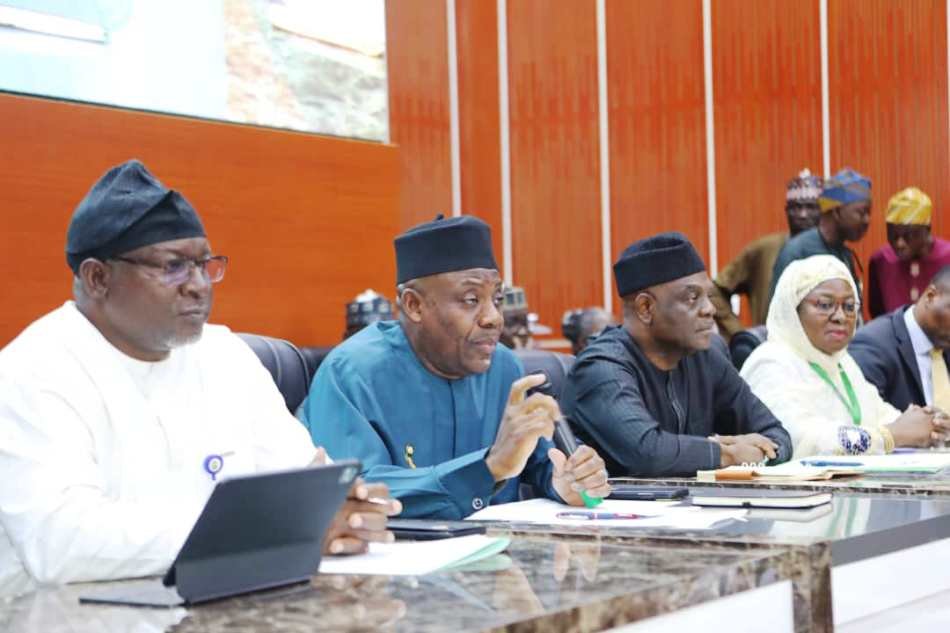The Federal Government has directed all tertiary institutions in Nigeria to fully utilise their unspent education intervention funds within 30 days or risk losing access to the money. The directive, issued by the Federal Ministry of Education, aims to improve accountability and expedite project delivery in the nation’s universities, polytechnics, and colleges of education.
The move comes amid rising concern that billions of naira allocated to educational institutions through agencies like the Tertiary Education Trust Fund (TETFund) remain unutilised for long periods. Officials say such funds are meant to drive research, build infrastructure, and upgrade facilities—but many projects stall because the money sits idle in institutional accounts.
Speaking during a meeting with heads of tertiary institutions in Abuja, the Minister of State for Education, Dr. Yusuf Tanko Sununu, said the government will no longer tolerate delays in spending public funds that should benefit students and lecturers. According to him, the 30-day ultimatum is a “wake-up call” to institutions that have become complacent in executing approved projects.
“Education is the backbone of national development, and resources meant for it must not waste away in bank accounts,” Sununu said. “We are giving every institution 30 days to show proof that their funds have been properly utilised or returned for reassignment.”

Table of Contents
Why the Deadline Matters
The Federal Government’s decision to enforce a strict timeline is not just about bureaucracy—it is about restoring trust in the education funding system. For years, audit reports have revealed huge sums of unspent or mismanaged allocations, even as Nigerian tertiary institutions struggle with poor infrastructure, overcrowded classrooms, and underfunded laboratories.
The Ministry explained that institutions have often cited lengthy procurement processes, administrative bottlenecks, or leadership changes as reasons for failing to implement projects on time. However, the government insists that these excuses are no longer acceptable.
Under the new directive:
- Institutions must submit comprehensive reports of all unspent TETFund allocations within 30 days.
- Any institution that cannot justify delays will have the money withdrawn or reallocated to others with urgent needs.
- The Ministry will begin joint verification exercises to cross-check the accuracy of spending reports.
- A public dashboard will soon be launched to show how funds are disbursed and used, promoting transparency.
The government also plans to train finance and project officers in tertiary institutions on fund management, procurement, and timely reporting. According to officials, the goal is not merely punishment but to build a culture of responsibility and planning in the use of public money.

Mixed Reactions from the Education Community
The announcement has generated mixed reactions from stakeholders in the education sector. Some university administrators applauded the government’s firm stance, saying it will ensure that intervention funds truly serve their purpose. Others, however, warn that the 30-day window may be too short given the bureaucratic realities of public institutions.
A vice-chancellor of a federal university in the South-West, who spoke on condition of anonymity, said:
“The intention is good, but implementation must be realistic. You cannot expect a university with a pending procurement approval to spend large sums overnight. There are processes we must follow to ensure accountability.”
On the other hand, education advocates believe the measure is long overdue. For them, unspent funds reflect inefficiency and poor planning that ultimately hurt students. They argue that with better management, many Nigerian universities could have world-class facilities.
Mrs. Grace Eze, an education policy analyst, said the directive should serve as a wake-up call to institutional leaders who treat public funds carelessly.
“When schools fail to use funds allocated for development, they deny students access to quality education. This new policy will compel them to take project implementation seriously,” she said.
What the Ultimatum Means for the Future of Tertiary Education
Analysts say the 30-day ultimatum could become a turning point for how education funds are managed in Nigeria. If successful, it will boost transparency, encourage better planning, and ensure that future allocations deliver real impact.
The Education Ministry has emphasised that the measure is part of a broader accountability drive to reform Nigeria’s tertiary education system. It aligns with President Bola Tinubu’s broader agenda to reduce waste, promote value for money, and modernise the country’s learning environment.
In practical terms, universities, polytechnics, and colleges of education are expected to:
- Fast-track ongoing construction or research projects.
- Submit regular updates to TETFund and the Ministry of Education.
- Adopt digital systems for project tracking and reporting.
- Publish the status of funded projects on their websites to allow public monitoring.
Experts note that these steps could restore public confidence in the education system. For years, Nigerians have questioned why billions were budgeted for education while classrooms and laboratories remain in disrepair. If properly implemented, this new directive could change that perception.
However, some warn that for the policy to succeed, the government must also address systemic challenges—such as slow approval processes, corruption in project bidding, and political interference in funding decisions. Without tackling these root problems, institutions may continue to struggle even with strict deadlines.
Still, many agree that the move represents a step in the right direction. It signals that the government is serious about ensuring that every naira allocated to education yields tangible results.

A Chance for Accountability and Renewal
As the 30-day clock ticks, all eyes are now on Nigeria’s tertiary institutions. For vice-chancellors, rectors, and provosts, this is a test of both competence and integrity. Those who have managed funds efficiently will have little to fear; those who have delayed or mismanaged theirs may face public scrutiny or sanctions.
Education experts hope the directive will encourage institutions to prioritise planning and project management, not just compliance. Beyond financial deadlines, they say the ultimate goal should be a culture of responsibility—where education funds directly translate to better teaching, learning, and innovation.
If the government keeps its promise to enforce transparency and provide technical support, this new era of accountability could bring a long-overdue revival to Nigeria’s tertiary education sector.
For now, students, lecturers, and the public are watching closely, waiting to see whether the deadline sparks meaningful change—or becomes another policy lost in Nigeria’s long list of unfulfilled education reforms.
Join Our Social Media Channels:
WhatsApp: NaijaEyes
Facebook: NaijaEyes
Twitter: NaijaEyes
Instagram: NaijaEyes
TikTok: NaijaEyes
READ THE LATEST EDUCATION NEWS





